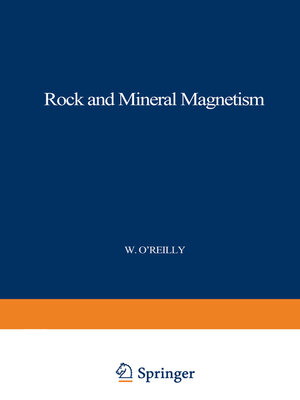
Sign up to save your library
With an OverDrive account, you can save your favorite libraries for at-a-glance information about availability. Find out more about OverDrive accounts.
Find this title in Libby, the library reading app by OverDrive.



Search for a digital library with this title
Title found at these libraries:
| Library Name | Distance |
|---|---|
| Loading... |
The past two decades have witnessed a revolution in the earth sciences. The quantitative, instrument-based measurements and physical models of. geophysics, together with advances in technology, have radically transformed the way in which the Earth, and especially its crust, is described. The study of the magnetism of the rocks of the Earth's crust has played a major part in this transformation. Rocks, or more specifically their constituent magnetic minerals, can be regarded as a measuring instrument provided by nature, which can be employed in the service of the earth sciences. Thus magnetic minerals are a recording magnetometer; a goniometer or protractor, recording the directions of flows, fields and forces; a clock; a recording thermometer; a position recorder; astrain gauge; an instrument for geo logical surveying; a tracer in climatology and hydrology; a tool in petrology. No instrument is linear, or free from noise and systematic errors, and the performance of nature's instrument must be assessed and certified. This has been the task of the research worker in rock and mineral magnetism.







